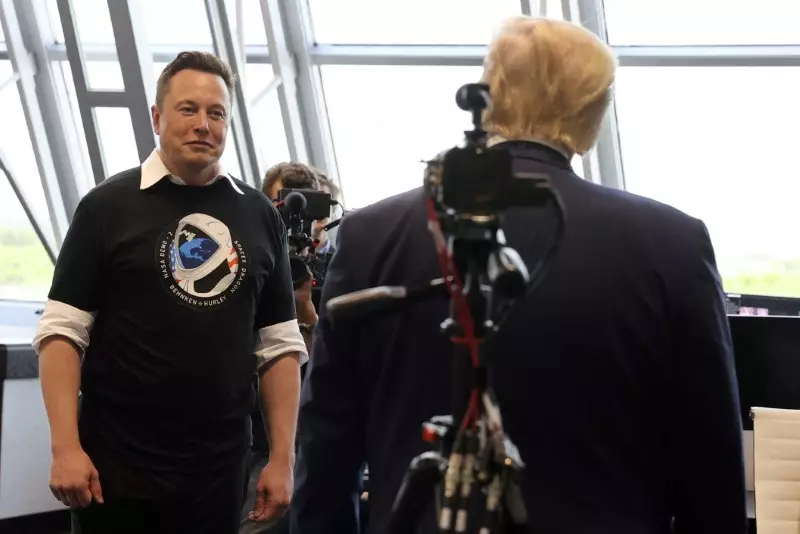When Republican presidential candidate Donald Trump was set to have an interview with billionaire entrepreneur Elon Musk on the social media platform X, things didn’t go as planned. The live stream faced technical difficulties right from the beginning, leaving many users unable to access it. Musk had to postpone the event due to a massive DDOS attack on the platform, which flooded the server with traffic, hindering the live stream. This setback brought to mind a similar situation in May 2023 when Florida Governor Ron DeSantis experienced glitches during his bid for the Republican presidential nomination on the same platform, resulting in a chaotic start to his campaign.
As Trump’s campaign was facing new challenges, this interview was seen as an opportunity for him to regain the spotlight. His Democratic rival, Vice President Kamala Harris, had been gaining momentum and erasing Trump’s lead in opinion polls. Trump’s return to X, formerly known as Twitter, after a year of absence was marked by controversial posts, including baseless claims and videos highlighting his legal battles. This reemergence on social media was a significant move for Trump, especially as he had been relying on platforms like Truth Social, with a smaller audience reach compared to X.
Elon Musk’s involvement in interviewing Trump also raised eyebrows, considering his political affiliations. Musk, once a supporter of Democratic President Joe Biden, shifted his position and publicly endorsed the Republican party following an incident involving an assassination attempt on Trump. This alignment with the GOP led to Musk starting a super PAC to support Trump’s campaign, which later came under investigation for possible violations of state laws. Trump, in turn, pivoted his stance on electric vehicles, embracing them after receiving Musk’s endorsement, much to the surprise of his critics.
Both Musk and Trump have been embroiled in various controversies regarding their statements and actions on social media. Musk falsely accused Biden and the Democratic Party of allowing undocumented immigrants to flood into the country to increase the number of potential Democratic voters, a claim debunked by legal restrictions on non-citizens voting in federal elections. Additionally, Musk endorsed an antisemitic post on X, stirring further controversy and drawing criticism from advocacy groups like the Anti-Defamation League.
The attempted interview between Donald Trump and Elon Musk on the X platform serves as a cautionary tale of the volatile nature of social media interactions involving high-profile figures. Technical glitches, shifting political alliances, and controversial statements can easily derail such events, undermining their intended purpose of reaching a broad audience and conveying meaningful messages. As we navigate the ever-evolving landscape of social media, it is essential to approach such interactions with caution, transparency, and a commitment to factual accuracy to avoid further polarization and misinformation.

